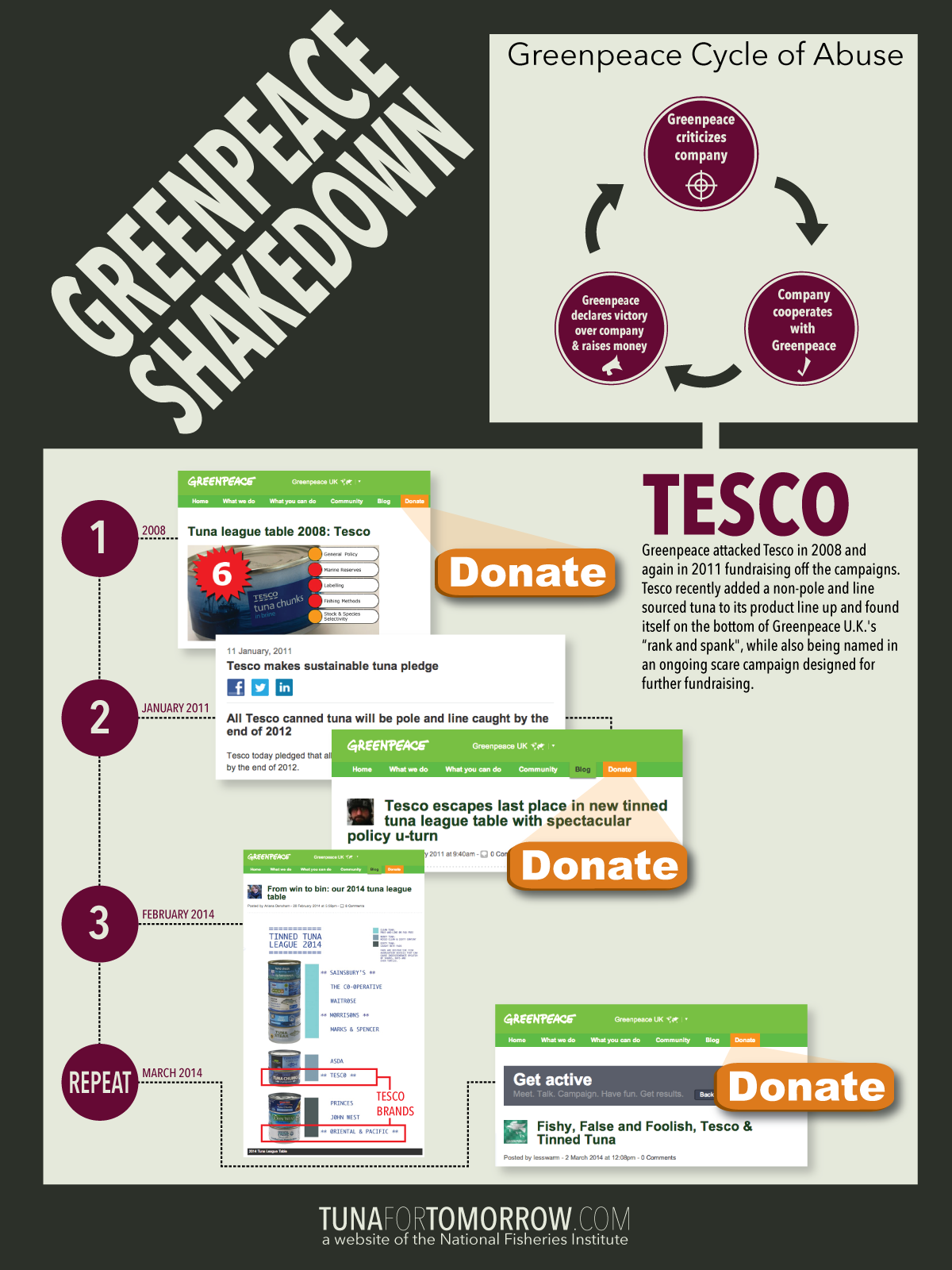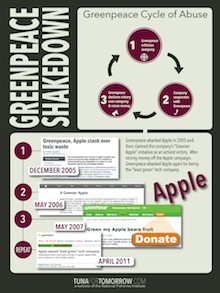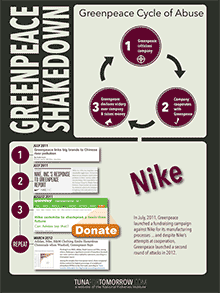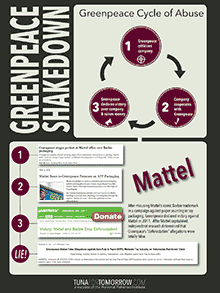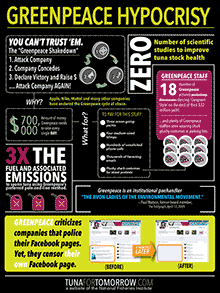Well, we hate to say we told you so but Greenpeace’s tongue-lashing of Tesco’s introduction of a new tuna label with a predictable supply and a price tag the average UK family can afford should come as no surprise. Three years after many UK retailers decided it was better to commit to an unsustainable and unpredictable pole and line tuna product than challenge Greenpeace’s sustainability accusations, Tesco is feeling the heat from a new public relations campaign from the green monster with even harsher hostility.
We don’t like to see Tesco in this situation. But not only was the latest “rank and spank” of Tesco predictable, it serves as a cautionary tale to American retailers that there is no appeasing Greenpeace. Greenpeace makes demands, retailers acquiesce only to find themselves in the PR spotlight they sought to avoid when Greenpeace claims they can’t keep their promises or worse yet, meet new Greenpeace’s demands because what they did before is no longer enough.
We have a name for this pattern-the Greenpeace Cycle of Abuse. In simple terms, Greenpeace makes demands, the retailer cooperates and then Greenpeace turns around and asks for more.
How do you avoid getting drawn into this vicious cycle? It sounds simple but just say no. Greenpeace claims the moral high ground and threatens media attention. But the media, when confronted with the science and Greenpeace’s extreme antics and fundraising modus operandi, are not so quick to buy in to Greenpeace claims of destructive fishing practices. Talk to your canned tuna suppliers about the serious and ongoing commitments they are making in the future health of tuna partnering with marine scientists and conservation groups including WWF through the International Seafood Sustainability Foundation. When Greenpeace comes calling, you can feel a whole lot better about saying no to being a victim




